Liqiang Xiao
End-to-End Conversational Search for Online Shopping with Utterance Transfer
Sep 12, 2021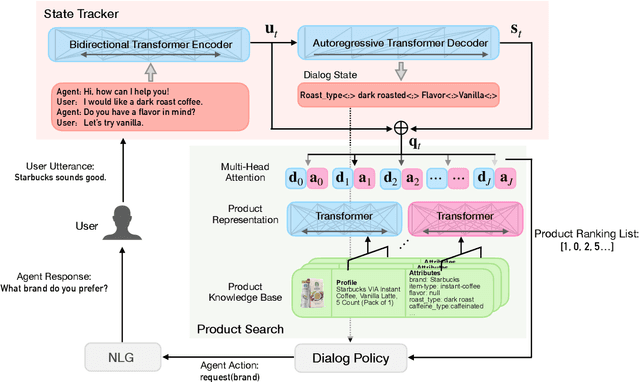
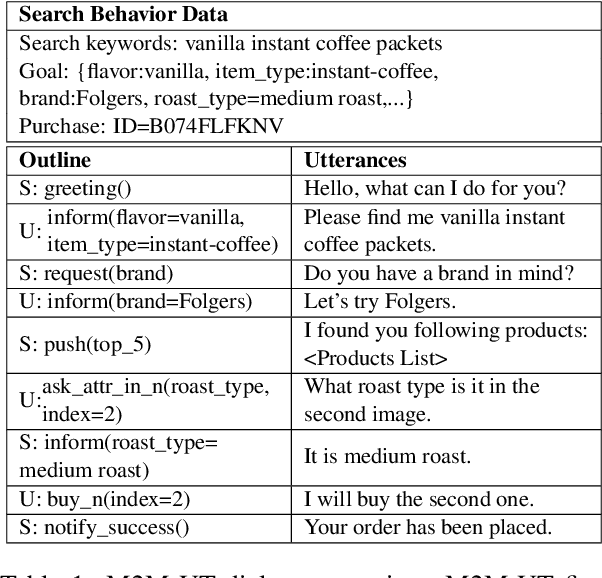
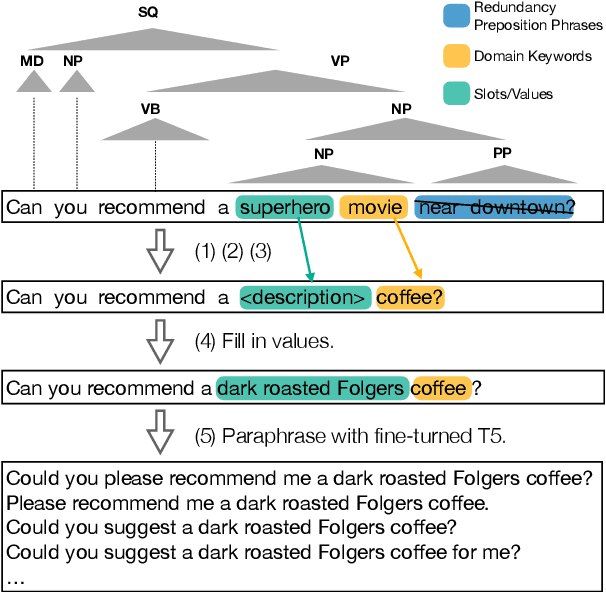

Abstract:Successful conversational search systems can present natural, adaptive and interactive shopping experience for online shopping customers. However, building such systems from scratch faces real word challenges from both imperfect product schema/knowledge and lack of training dialog data.In this work we first propose ConvSearch, an end-to-end conversational search system that deeply combines the dialog system with search. It leverages the text profile to retrieve products, which is more robust against imperfect product schema/knowledge compared with using product attributes alone. We then address the lack of data challenges by proposing an utterance transfer approach that generates dialogue utterances by using existing dialog from other domains, and leveraging the search behavior data from e-commerce retailer. With utterance transfer, we introduce a new conversational search dataset for online shopping. Experiments show that our utterance transfer method can significantly improve the availability of training dialogue data without crowd-sourcing, and the conversational search system significantly outperformed the best tested baseline.
Multi-Task Label Embedding for Text Classification
Oct 17, 2017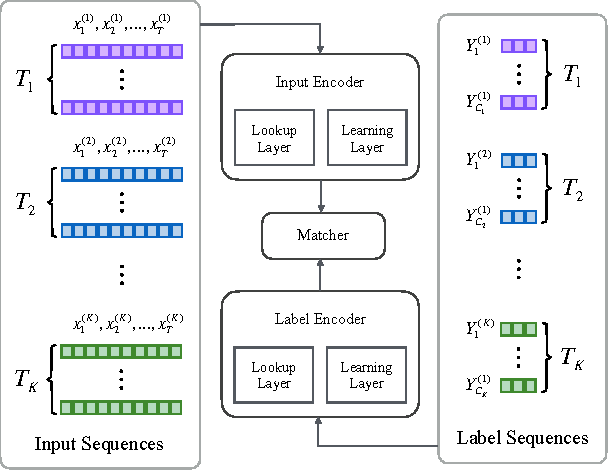

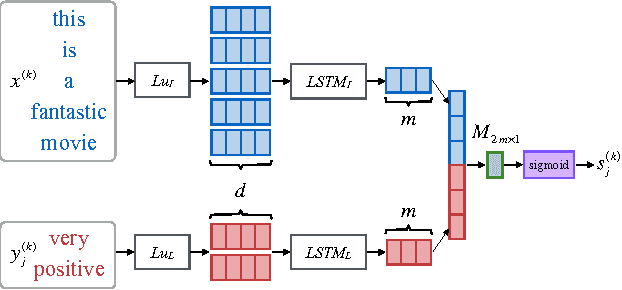

Abstract:Multi-task learning in text classification leverages implicit correlations among related tasks to extract common features and yield performance gains. However, most previous works treat labels of each task as independent and meaningless one-hot vectors, which cause a loss of potential information and makes it difficult for these models to jointly learn three or more tasks. In this paper, we propose Multi-Task Label Embedding to convert labels in text classification into semantic vectors, thereby turning the original tasks into vector matching tasks. We implement unsupervised, supervised and semi-supervised models of Multi-Task Label Embedding, all utilizing semantic correlations among tasks and making it particularly convenient to scale and transfer as more tasks are involved. Extensive experiments on five benchmark datasets for text classification show that our models can effectively improve performances of related tasks with semantic representations of labels and additional information from each other.
A Generalized Recurrent Neural Architecture for Text Classification with Multi-Task Learning
Jul 10, 2017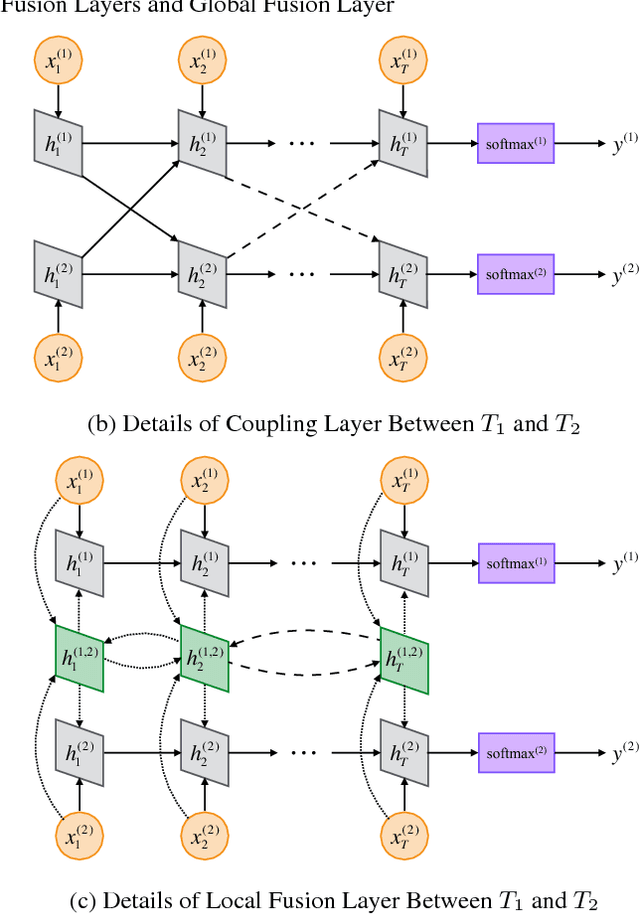

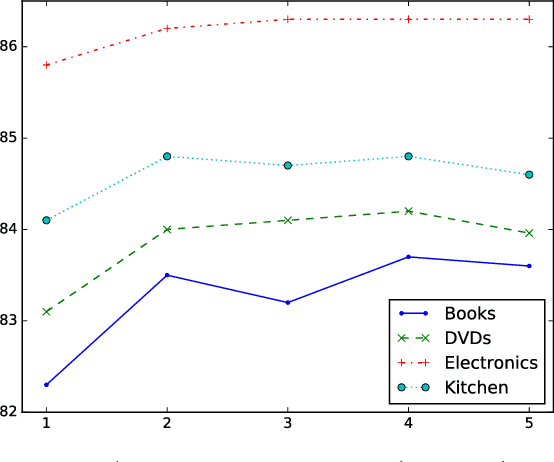
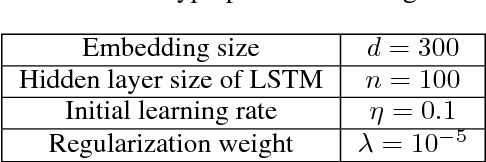
Abstract:Multi-task learning leverages potential correlations among related tasks to extract common features and yield performance gains. However, most previous works only consider simple or weak interactions, thereby failing to model complex correlations among three or more tasks. In this paper, we propose a multi-task learning architecture with four types of recurrent neural layers to fuse information across multiple related tasks. The architecture is structurally flexible and considers various interactions among tasks, which can be regarded as a generalized case of many previous works. Extensive experiments on five benchmark datasets for text classification show that our model can significantly improve performances of related tasks with additional information from others.
 Add to Chrome
Add to Chrome Add to Firefox
Add to Firefox Add to Edge
Add to Edge